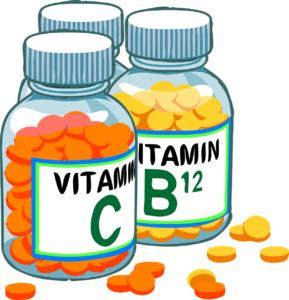Introduction:
It’s more than just getting by without falling ill; it’s thriving in every aspect of your existence. This is a guide that offers 101 health tips including advice on nutrition and diet, physical fitness, mental well-being, as well as daily habits. Each tip is aimed at helping you make some small yet highly effective changes so that you become healthier and happier.
Types of Exercise:
Benefits:
1)Getting Started with Exercise
2) Programmes Though the world sees no end to these
3) Mental Health
4) Stress Management
5) Sleep and Relaxation
6) Mindfulness
7) Everyday Habits
8) Hygiene
9) Social Connections
10) Work-Life Balance
11) Health Tips for Specific Groups Children Elderly Pregnant Women
Nutrition
Balanced Diet
A balanced diet is the cornerstone of good health. It includes different kinds of food in the right portions so that your body receives all necessary elements. it needs to work well. Incorporate fruits, vegetables, lean proteins, whole grains, and healthy fats into your meals. Each food group provides essential nutrients that contribute to overall health.Fruits and vegetables are packed with vitamins, minerals, and antioxidants. Aim to fill half your plate with these nutrient-dense foods. Lean proteins, such as chicken, fish, beans, and legumes, are crucial for muscle repair and growth. Whole grains like brown rice, quinoa, and oats provide sustained energy and fiber. Healthy fats come from sources like avocados, nuts, and olive oil. They are important for brain health and hormone production.

You May Also Like : Balancing Act: Tips for Sustainable Natural Weight Management
Macronutrients and Micronutrients can be understood.
- Macronutrients: They are energy giving and they include carbohydrates, proteins and fats. Each macronutrient has its own purpose in maintaining the body’s functions.
Carbohydrates: These provide energy and should be sourced from whole grains, fruits, and vegetables.
Proteins: Crucial for muscle repair as well as growth. Some of the sources include meat, beans, as well as legumes.
Fats: Required for brain health in addition to hormone production. Select healthy fats such as those found in avocados, nuts or even olive oil.
Micronutrients: That are vitamins plus minerals which are needed in small amounts but are essential. For prevention of diseases and keeping the body functioning properly. Get enough Vitamin D, Calcium, Iron, Magnesium from your food sources including dairy products leafy greens nuts fish among others.
Hydration:
Being hydrated is a must since it is necessary to keep digestion going on normally, blood circulating without hitches besides temperature regulation. You should at least take eight glasses of water per day. Remember hydration needs change based on your activity level and climate too; drinking water not only helps maintain healthy skin but also support kidney function whereas improving mood and energy levels too sometimes especially if you feel a bit down or sleepy.Make hydration easier by carrying a reusable water bottle with you. You can make it tastier by putting slices of fruit or herbs into your drink apart from this advice: go herbal teas and low-fat milk hydrate you too.
Vitamins and Minerals:
Various body functions are supported by essential vitamins and minerals. It is important to have the right amounts of Vitamin D, Calcium, Iron, and Magnesium. Foods such as dairy products, leafy greens, nuts and fish contain these nutrients. Vitamin D helps in bone health and immune function. Calcium makes bones and teeth strong. Iron is needed for blood’s oxygen transport whereas magnesium plays a crucial role in muscle movement and nerve conduction.It’s best if you get these nutrients from food; however, supplements can be helpful when you have dietary restrictions or medical conditions that limit your ability to obtain them from food sources. Before starting on any supplement regimen consult a healthcare provider.
Meal Planning:
By meal planning you will save time, money and make healthier eating choices. Preparing meals at home allows you to select your ingredients carefully and control portion sizes. Ensure that your meals include different types of foods so that you can have a variety of nutrients. When making a grocery list based on meal plan it would ensure healthy choices are adhered to throughout shopping hence avoiding impulse purchases too.

Exercise:
Types of Exercise:
Therefore, different kinds of exercise should be integrated into everyday life:
Cardio: Running (jogging), biking (cycling), swimming (aquatics)
Strength Training: Weight lifting (power lifting), resistance bands (strength bands)
Flexibility: Yoga (stretching exercises), stretching (flexible exercises)
Balance: Tai Chi (Chinese martial art) Pilates (physical training system developed by Joseph Pilates)
To say it differently cardiovascular exercises enhance heart functioning resulting in increased endurance while strength training improves muscles’ mass strength-Benefits
Regular exercise offers numerous benefits, including:
- Improved cardiovascular health
- Enhanced muscle strength and endurance
- Better flexibility and balance
- Reduced risk of chronic diseases
- Increased energy levels
- Improved mental health and mood
Exercise can also boost your immune system. It can help you sleep better and improve your life. Regular exercise lowers the risk of conditions. These include heart disease, type 2 diabetes, and certain cancers.Making a Healthy Exercise Routine Begin with easily achievable objectives. Aim for at least 150 minutes per week of moderate-intensity exercise. As your fitness improves, you should increase the amount and the intensity of the work out. Engage in activities that you like as this will help you stick to it. Walking, dancing, playing games are some of the finest ways to be active.
Always listen to your body and avoid overtraining. Have rest days included in your schedule for muscle recovery purposes. Consult a fitness trainer who can help you create a workout plan tailored specifically for you.Common Barriers to Exercise & How to Overcome Them There are several obstacles which prevent many individuals from being able to engage in regular physical activity, including time, motivation and resources. Here are some tips on how these barriers can be overcome:
Add short bursts of activity into your daily routine as a way of better managing your free time i.e., taking stairs or walking during breaks.Set realistic goals. Track progress and reward yourself at milestones. Find an exercise buddy. They will make sure that you follow your plans.Use free or cheap resources provided by community such as online workout videos, home fitness equipment, classes.
Getting Started:
Start with small manageable goals that you can achieve easily. Aim at least 150 minutes per week of moderate-intensity exercise (Cassidy). Increase intensity and duration gradually depending on one’s state of fitness. Find activities you enjoy, which will make it easier to stick with your routine. Walking, dancing, and playing sports are great ways to stay active.It’s important to listen to your body and avoid overtraining. Include rest days in your schedule to allow your muscles to recover. Consider working with a fitness trainer. They can help you create a personalized exercise plan that fits your needs and goals.
Mental Health:
Stress Management:
Chronic stress can lead to numerous health problems. Practice stress management techniques such as deep breathing, meditation, and yoga. Find hobbies and activities that help you relax and unwind. Managing stress is crucial for maintaining mental and physical health. Chronic stress can contribute to high blood pressure, heart disease, obesity, and diabetes.Identify your stress triggers and develop strategies to cope with them. This might include time management skills. It could also mean setting boundaries. Or, it might involve seeking support from friends. This could be family or a mental health professional.
Sleep:
Quality sleep is essential for overall health. Aim for 7-9 hours of sleep per night. Create a bedtime routine. Keep a set sleep schedule. Make your sleep environment comfy. Good sleep hygiene can improve your mood, memory, and cognitive function.Avoid caffeine and electronics before bedtime. They can stop you from falling asleep. Consider creating a relaxing bedtime ritual. This could be reading a book, taking a warm bath, or doing relaxation techniques.
Mindfulness:
Mental clarity can be enhanced by practicing mindfulness. Techniques include meditation. You may practice mindful breathing. Also, you notice your thoughts and feelings. And you do this without judgment. By integrating mindfulness into your daily life, it helps to keep you in the present moment and reduces anxiety.Focus, emotional regulation and well-being have all been shown to improve with mindfulness practice. It is a versatile tool that can be used anytime anywhere to enhance mental health.

Preventive Healthcare:
Regular Health Check-ups and Screenings:
Early diagnosis for possible problems is possible through regular health checkups Traveling to get an annual physical, going to the dentist or optician Help from doctors should be sought or heeded There are checkups after so many years when ones age has advanced.Conditions such as high blood pressure, diabetes, and cancer can be identified early during regular check-ups. Often this means more effective treatment and better outcomes.
Vaccinations and Their Role in Disease Prevention:
To prevent diseases vaccinations are important Ensure that you received all recommended vaccines like flu shots measles tetanus booster shots They protect individuals They also safeguard societies This happens through reduction of infections caused by diseasesKeep informed by speaking with healthcare provider
Understanding and Managing Persistent Diseases:
Diabetes, hypertension, heart disease and others are some of the common chronic conditions that require continuous monitoring and management. In caring for these diseases, one should focus on regular check-ups, adherence to prescribed medications as well as lifestyle adjustments. Collaborate with your doctor in order to come up with a plan that will be helpful. The program must include everything from food choices to movement to check-ups.
The Significance of Dental and Eye Health:
Both dental health as well as eye health play important roles in overall health. Regular dental visits can prevent oral diseases. Usually they detect early signs of medical problems too. It is important also to maintain good oral hygiene which involves brushing teeth regularly and flossing.Eye examinations help detect eye diseases as well as vision impairments at early stages hence enabling prompt treatment. Protect your eyes by wearing sunglasses and taking breaks away from screens.
Healthy Lifestyle Choices:
Smoking and Substance Abuse Dangers:
Smoking cigarettes or using drugs wrong has severe effects on someone’s health; it leads to cancerous tumors in lungs, liver problems like hepatitis, heart attacks among other issues.Look for assistance if you need support in quitting smoking or substance abuse because there are people who want what is best for you. For instance, there is counseling you can opt for, apart from being part of support groups or getting medication related advice from practitioners.
Safe Alcohol Drinking Limits:
Drink alcoholic beverages moderately if you have decide that alcohol is an option for you but do not take drugs when drinking excessively since it may result in liver damage addiction, as well as other health problems. Ensure that you follow guidelines for safe drinking and if any struggles arise with alcohol use, seek help.
Weight Loss Tips:
One must keep a healthy weight to be sound overall. Keep active. Moreover, eat good food. Do this in order to achieve and maintain a healthy weight. Avoid fashionable diets but rather concentrate on changing lifestyle patterns which can be maintained.Watch your portion sizes, choose nutrient rich foods and stay active. Set achievable weight goals and monitor your progress to keep motivated.
Ways of Successful Aging:
Healthy aging involves sustaining physical fitness, mental and social welfare Stay physically active, consume well-balanced diets and get involved in social events that encourage healthy aging for the elderly people. Get regular medical check-ups and take preventive measures against age-related illnesses.Keep mentally active. Engage your mind with puzzles, books or new skill acquisition sessions. Create friendship networks and engage in local activities to prevent isolation or depression happening.
Everyday Routines:
Hygiene:
Good hygiene is necessary for wellbeing; germs spread quickly when we don’t clean ourselves up properly such as washing hands frequently, brushing teeth daily twice times ad taking showers often throughout the day regularly so that one can avoid infections which will enhance our health status at large besides personal cleanliness fosters social integration as well as self-esteem.Ensure the areas where you live are cleaned up regularly as well as being kept tidy by disinfecting them occasionallytouched surfaces. Also, follow food safety to avoid foodborne illnesses.
Social Connections:
Good relationships with other people can improve mental and emotional health. Spend time with your close relations and friends. Take part in clubs or associations, as well as get involved in community activities. The process of creating and keeping relationships may provide help to you during difficult times and make you feel more a part of something.Social interaction plays an important role for mental health, it also helps reducing loneliness and depression symptoms. Another way to keep social is by doing charity work and engaging into group activities.
Work-Life Balance:
Maintaining a healthy work-life balance is essential for stress reduction and preventing burnout. Set work life boundaries. Take regular breaks between tasks or engage yourself in hobbies or relaxation activities. More productivity results from balance at the same time better job satisfaction and good health. Learn how to manage time effectively, delegate tasks where possible, remember to go on vacation and have some off time for recharging thus avoiding work-related stress.
Health Tips for Specific Groups
Children:
Children have unique needs when it comes to their health. Additionally, they need adequate sleep, exercise regularly through play dates with other children; this should be done involving them from infancy. Involve children in meal planning and preparation to teach them about nutrition.To encourage physical activity among others is limiting screen time while promoting outdoor play games.Specific health challenges come with aging. Focus on maintaining mobility, preventing falls, and managing chronic conditions. Make sure they are eating a balanced diet and not being cut off from friends. Regular exercises benefit both physical therapy and balance maintenance.Encourage participation in social activities and hobbies to keep the mind active. Monitor medication. Ensure regular check-ups to address health issues promptly.
Pregnant Women:
Pregnancy requires special attention to health. Eat a balanced diet. Take prenatal vitamins. Stay hydrated. Get regular prenatal care Avoid using drugs and alcohol while pregnant; it will harm your baby!. Prenatal care is very important because it ensures that the mother and growing fetus are healthy.Stay active with pregnancy-safe exercises such as walking, swimming, and prenatal yoga. Get plenty of rest and listen to your body’s needs during this time period before delivery or breastfeeding begins.
Preventive Health Measures Regular Check-ups:
Regular health check-ups can catch potential problems early on schedule annual physical exams dental checkups eye exams follow your doctor’s advice get more screenings specific for age and health history.Routine check-ups can help find conditions such as high blood pressure diabetes cancer; they can find them at an early stage thus.should be screened regularly for high blood pressure diabetes cancers before they become too serious to manage properly; detection often leads to more effective treatment and better outcomes.
Vaccinations:
It is vital to be vaccinated against diseases. Take all the vaccines that are advised. Recommended vaccinations include flu jabs, measles, and tetanus shots. Immunization protects the individual. It also plays a role in community disease control.Keep track of new vaccines and learn about them from your doctor. Follow the immunization timetable provided for your specific age bracket and health status.
Health Screenings:
Regular health screenings help detect illnesses at an early stage when they can still be treated more effectively. Checkups involve tests involving checking blood pressure, cholesterol levels, cancer screening, and bone density measurements. These tests give significant data on health that may influence preventive measures.Discuss with your provider about which screening tests are appropriate for you based on your age, sex and family history. Yearly checkups reduce the risk of having severe medical conditions as well as promote good health throughout life.
Healthy Lifestyle Choices:
Avoiding Bad Habits:
Stay away from unhealthy habits that can affect your health like smoking cigarettes, drink too much alcohol or taking drugs because these habits increase the chances of getting chronic illnesses which impair overall well-being; smoking is among leading cause of lung cancer and heart diseases while excessive consumption of alcohol can result into diseases such as liver cirrhosis and addiction; seek any assistance that may encourage cessation of harmful behaviors; there exist resources where you can get help formThey include counseling, support groups, and medical treatments. They can help you make healthier choices.

Recomend You: Balancing the Books: Navigating Financial Stress for Enhanced Family Health
A Healthier Way of Living:
Embrace Healthy Habits:
They include things such as exercising regularly, eating right and getting enough rest. Mindfulness is also important in engaging in activities that bring happiness and satisfaction. Physical fitness, mental well-being as well as emotional balance are the results of developing healthy habits.Setting realistic goals and appreciating smaller achievements helps one stay motivated too. Surround oneself with people who will encourage their health choices.
The Importance of Health Tips:
Benefits of Following Health Tips
- Health tips can be very practical and useful for improving our lives in a number of ways. How to achieve them on daily basis include:
- Enhances Physical Health. Regular exercise, a balanced diet, and enough water help maintain a healthy weight and boost the immune system. They also reduce the risk of chronic diseases like heart disease, diabetes, and cancer.
- Stress management techniques, enough sleep, and social connections improve mental health. They reduce risks linked to anxiety and depression.
- Prolongs Life Span. Early detection and management are forms of preventive care. They come from regular checkups and immunization.
- They increase life expectancy. They also lead to better energy. Eating well drinking sufficient water exercising these three increase energy levels hence making one feel more energetic all day long.Create A Better Quality Of Life.
- Making healthy decisions can lead to a better life. Being fit means more than just physical . It also means mental wellness at its best.
Long-Lasting Impacts:
- Some of the long-term impacts of this:
- Preventing illness and healthy living could cut medical exploitation. This would reduce care costs.
- Feeling good helps you concentrate and focus. It gives you more energy, which boosts productivity at work and in life.
- This is a trait. It lets people form and keep strong social bonds. This helps them connect with supportive and fulfilling communities.
- Improvements Towards Aging: It is key to start good habits early. They promote healthier aging by keeping older people active and independent. They also cut problems.
Conclusion:
When you include these tips on your schedule daily, it can really improve your being. Be reminded that small changes can lead to significant difference. Start slowly with a few tips that have resonated with you, then gradually start picking on more for stronger habits. Take a step towards healthier living now because the journey starts with one step only!
FAQs:
Where do I begin when I want some simple health tips?
Basic adjustments are a good starting point. This may involve drinking more water. Also, eating more fruit and vegetables. And, adding a short walk each day. Little steps can lead to great improvements in health.
How do I enhance my mental fitness?
Learn to practice stress reduction techniques. These include meditation and deep breathing. Remember to get enough sleep and keep connected socially. Also mindfulness practices could help improve mental health issues among other things
What are advantages of having a regular exercise?
Regular exercise strengthens the heart, muscles, and skin. It also reduces the risk of chronic diseases. Mood is enhanced and well-being is made better.
How important is it for me to have a balanced diet?
A balance diet plays a big role in making sure that your body gets all the necessary nutrients for optimum functioning. It helps maintain healthy weight. It also facilitates body functions as well as reduces disease risks.
How much water should I drink per day?
You may want to aim to consume at least eight glasses of water daily. Hydration requirements will differ as per activity level or climate so adjust accordingly.

No Responses